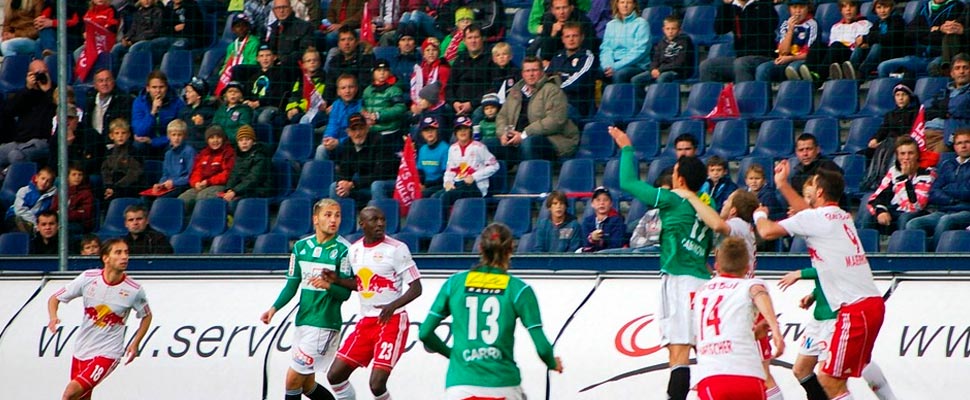Young people seem to lose interest in sports, why?
Despite the fact that the sport has billions of fans in the world, the new generations are beginning to lose their interest in these.

The generations are changing and their consumption of entertainment too. Photo: Pixabay
LatinAmerican Post | Juan Bacallado
Listen to this article
Leer en español: Los jóvenes parecen perder el interés en el deporte ¿qué sucede?
The generations are changing and their consumption of entertainment as well, those born between 1994 and 2010 are known as Generation Z or "Centennials" and are characterized by growing along with the internet as well as its massive use, and that is where the problem appears for sports industry. According to El Confidencial, before sports leagues had to compete with each other to attract a larger audience, but now more powerful competitors are added : digital media and streaming, such as Netflix, Twitch, YouTube and hundreds of public access platforms .
According to an investigation by Morning Consult, 53% of Centennials are followers of the sport, which indicates a drop taking into account that in Millennials (born between 1981-1993) this number reaches 69% , this survey was conducted in the United States. During 2020, a country where sports entertainment stands out in various disciplines where they are benchmarks in the world such as the NBA, MLB and the NFL. As for the male public, this trend is even more marked, since 58% of Centennials men are interested in sport, while, in adults, this number reaches 75%. Out of 27 sports included in the survey, Generation Z only outperformed Millennials in competitions such as esports and the NBA, in the UFC they were equal .
Los e-Sports son el nuevo negocio deportivo Las marcas apuestan por el mundo #gamer para captar la generación Z. Descubre con @daniel_cepeda por qué es la nueva oportunidad de mercado > https://t.co/j8ROuOIH2Z#SMSBarcelona #SMS #SportBusiness #Management #Deporte #eSports pic.twitter.com/8EYSPhSDtx
— Sports Management School BCN (@SMS_Barcelona) March 11, 2020
Television: the problem?
The main reason for this difference in interests is mainly due to the type of media that sports use to broadcast, since, only 41% of Centennials use traditional television to follow their sports and only 25% watch live sports online at least once a week. Meanwhile, 50% of Millennials do watch some live sport once a week.
Muy interesante el análisis de @AlexMSilverman sobre las expectativas de la Generación Z como fan de deporte
Capaz el dato + contundente: sólo el 25% de estos jóvenes 13-23 años consideran el vivo como parte importante del fan
Necesidad de construir nuevas narrativas#GenZ https://t.co/FU5OexuGUh pic.twitter.com/YO8eJRc8rX— Romain MARTIN(desde ) (@Romsverts) December 9, 2020
The accessibility to sports is being a barrier for Generation Z. The Washington Post reports that sports executives still do not give importance to this generation so they do not adapt to their way of consumption , Tim Ellis, marketing director of the NFL explained that "you have to make them fans when they are 18, or you will lose them forever" since some other executives are confident that the Centennials will have a greater interest in the sport when they reach 30 years of age.
It may interest you: A great year is coming for Esports in Latin America
Sport is expensive
Unlike access to social networks such as Twitch, YouTube, among others, which can be accessed for free -you only need to pay for an internet service- or streaming platforms such as Netflix (where the payment plan is between $7.99 to $13.99 per month), the sport is much more expensive. According to El Confidencial, a Spaniard must pay 57 euros a month to have access to all European soccer, the Pay per View of a single UFC event has an extra price of $ 59.99 on ESPN + . But it is not only the transmission, the sports shirts also have a high cost, a Real Madrid shirt is priced at $ 60 in the official Adidas store , while a Golden State shirt with the name of Stephen Curry can be worth $ 110 in the official Nike store .
No solo en Panamá ocurre. Sino en todas partes del mundo. No es culpa de los aficionados no ir a los estadios, sino de los dirigentes que quieren convertir el fútbol en un negocio sin importar sus altos precios y pésima organización. #ColombiaVsPanama #Panama #verguenza #FIFA pic.twitter.com/YygmesKZ98
— Nación deportiva (@DeportivoNacion) June 3, 2019
The pandemic has also been a factor affecting interest in sport. With the stadiums closed as well as the bars, the fans have had a detachment and the young people do not develop any interest. However, when the stadiums were open it was not a great advantage either, since for example the cheapest ticket for the Santiago Bernabéu oscillated around 70 euros, while in a Spanish second division match you had to pay up to 15 euros.




